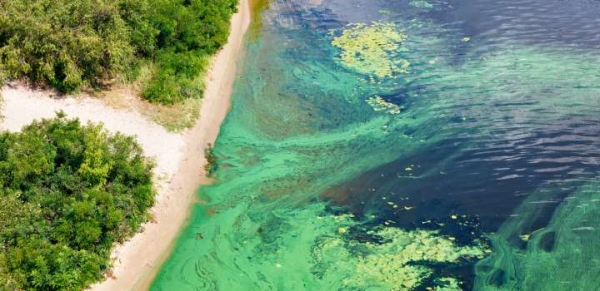New research into the marine phosphorus cycle is deepening our understanding of the impact of human activities on ecosystems in coastal seas.
The research, co-led by the University of East Anglia, in partnership with the Sino-UK Joint Research Centre at the Ocean University of China, looked at the impact of aerosols and river run-off on microalgae in the coastal waters of China.
It identified an ‘Anthropogenic Nitrogen Pump’ which changes the phosphorus cycle and therefore likely coastal biodiversity and associated ecosystem services.
In a balanced ecosystem, microalgae, also known as phytoplankton, provide food for a wide range of sea creatures including fish, shrimp, and jellyfish.
Read more at: University of East Anglia
Pollutants from aerosols and river run-off can cause man-made eutrophication, whereby nutrients cause massive algal blooms and unbalance the nitrogen-phosphorus nutrient structure (Photo Credit: University of East Anglia)


